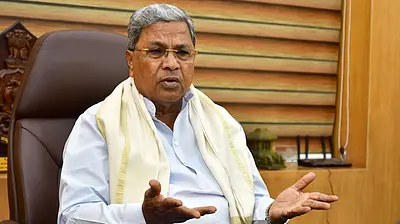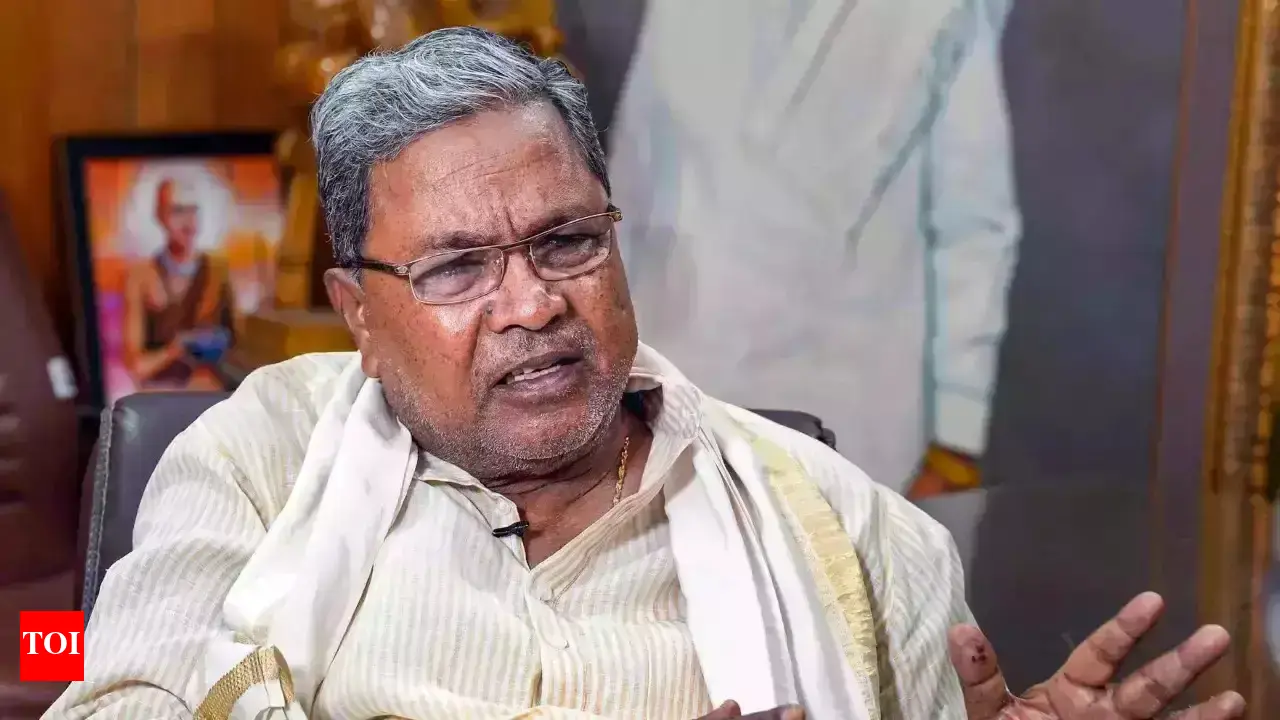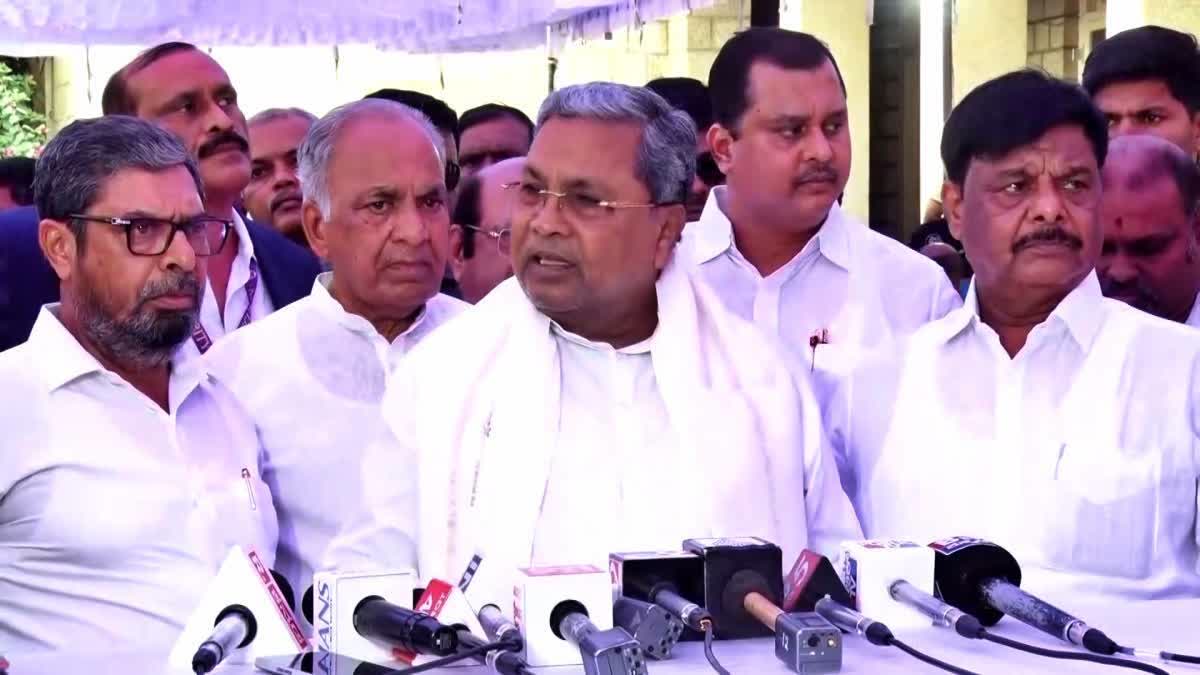Karnataka Chief Minister Siddaramaiah’s recent remarks on the Pahalgam terror attack have ignited a fierce debate across India. In a candid and controversial statement, Siddaramaiah asserted that “there is no need for a war with Pakistan,” labeling the attack as a “failure of intelligence and military preparedness” by the central government. His comments, coming in the aftermath of one of the deadliest terror attacks in Kashmir’s recent history, have drawn sharp reactions from political parties, the public, and even international media, making this a trending topic with far-reaching implications for India’s security discourse and foreign policy.
Siddaramaiah’s remarks have not only stirred political controversy but have also highlighted deep divisions within India’s political landscape over how to respond to terror attacks. The BJP has launched a scathing attack on the Karnataka Chief Minister, dubbing him “Pakistan Ratna” and accusing Congress leaders of undermining national unity by shifting blame away from Pakistan and onto the central government. BJP leaders have amplified their criticism by referencing Pakistani media coverage, which has widely reported Siddaramaiah’s comments as evidence of dissent within India’s political class regarding war and peace with Pakistan. This political crossfire has intensified the national debate on accountability, patriotism, and the appropriate response to cross-border terrorism.


Pahalgam Attack: The Deadliest Strike Since Pulwama
On April 22, 2025, five armed militants stormed the Baisaran Valley near Pahalgam, Jammu and Kashmir, targeting tourists in a brutal mass shooting. The attackers, armed with M4 carbines and AK-47s, segregated victims by religion before opening fire, resulting in 26 deaths and 20 injuries. Most victims were Hindu tourists from across India, with a local Muslim pony operator killed while trying to save others. The attack, claimed and later retracted by The Resistance Front (TRF), has been described as the most lethal in the Valley since the 2019 Pulwama attack, which killed over 40 soldiers.
The incident sent shockwaves through the nation, prompting Prime Minister Narendra Modi to cut short an overseas visit and convene an emergency Cabinet Committee on Security meeting. The government responded with sweeping measures: suspending the Indus Waters Treaty, closing the main border crossing with Pakistan, expelling Pakistani diplomats, and imposing a travel ban on Pakistani nationals. Security agencies launched a massive manhunt, and the National Investigation Agency (NIA) took over the probe, relying on crucial video evidence and eyewitness accounts to reconstruct the sequence of events.
Amid the uproar, Siddaramaiah has repeatedly clarified his position, insisting that his call for restraint does not equate to ruling out war altogether. He emphasized that war should always be the last resort, only to be considered when all other measures have failed. “Only when every other means to defeat the enemy has failed should a country be compelled to go to war,” he reiterated, while also welcoming the Centre’s diplomatic steps such as reviewing the Indus Waters Treaty. Siddaramaiah further stressed that decisive actions in the national interest do not always need to be publicized, assuring that the nation stands united behind strong and necessary steps taken by the government.
Siddaramaiah’s Statement: No Need for War, Focus on Security Lapses
In the days following the attack, Siddaramaiah broke ranks with the dominant national narrative by stating, “There is no need for war, stringent measures should be taken. The security system needs to be tightened. We are not in favour of war. There should be peace, people should have security, and the central government should take security measures”. He stressed that war should only be considered if absolutely inevitable, not as a knee-jerk reaction to terror incidents.
Siddaramaiah directly attributed the Pahalgam tragedy to lapses in intelligence and security, stating, “Security should have been provided there, as many tourists go to Kashmir. Providing security is whose responsibility? It is the Central government’s responsibility.” He further asserted, “There is a failure of intelligence from the Government of India. I have said that the Government of India did not provide proper security. There should be war if it is inevitable, not that it should not be done at all. But, immediately, there is no need for war, this is what I have said”.
His remarks have been widely covered by both Indian and Pakistani media, with the latter highlighting internal Indian voices calling for restraint and introspection rather than escalation. Siddaramaiah also referenced past government promises following the Pulwama attack, questioning their effectiveness: “Even after that statement, 27 people were killed in Pahalgam by terrorists. He had then said he would wipe out terrorism. What happened?”.
The Pahalgam attack itself has exposed significant operational and intelligence lapses within India’s security apparatus. Reports indicate that the Baisaran Valley, a major tourist destination, was opened to visitors two months earlier than usual without proper coordination with security agencies, leaving the area vulnerable. On the day of the attack, all three layers of security-the Army, CRPF, and Jammu & Kashmir Police-failed to detect or intercept the militants, who managed to carry out the massacre and escape undetected. The absence of surveillance infrastructure, such as drones and cameras, and the lack of an immediate medical response further compounded the tragedy, underscoring the need for a comprehensive overhaul of threat assessment and preparedness in sensitive regions.

Political Fallout: Congress, BJP, and the National Conversation
Siddaramaiah’s comments have sparked a political firestorm. The Bharatiya Janata Party (BJP) accused the Congress and opposition leaders of “competing to give a clean chit to Pakistan,” arguing that such statements undermine India’s diplomatic position and embolden adversaries. BJP spokespersons have pointed to a pattern of opposition leaders shifting blame away from Pakistan and onto the central government, especially after all-party meetings where consensus on strong action is usually projected.
Congress leaders, meanwhile, have defended Siddaramaiah’s stance, insisting that demanding accountability for security lapses is not equivalent to exonerating Pakistan. They argue that robust internal security and intelligence are as critical as external deterrence, especially in a region as volatile as Jammu and Kashmir. The debate has spilled over into public discourse, with citizens, analysts, and media outlets weighing the merits of war, peace, and the need for systemic reforms in security apparatus.
In addition to the operational failures, the attack has reignited discussions about the broader pattern of intelligence shortcomings in India’s recent history. Security analysts have drawn parallels with previous incidents such as the Kargil conflict, the 2008 Mumbai attacks, the 2019 Pulwama bombing, and the Galwan clash with China in 2020-all of which were marked by lapses in vigilance and coordination. Experts argue that the Pahalgam massacre, like these earlier tragedies, could potentially have been prevented with better intelligence sharing, stricter adherence to security protocols, and more robust inter-agency cooperation. This has led to renewed calls for systemic reforms and greater accountability within India’s security establishment.
Security Lapses and Intelligence Failure: What Went Wrong?
Emerging details from the investigation have revealed significant gaps in security preparedness. The Baisaran Valley, a popular tourist spot, was opened to visitors two months ahead of schedule without proper notification to security forces, creating vulnerabilities that the attackers exploited. Survivors’ accounts and video evidence have highlighted the attackers’ methodical approach, including segregating victims by religion and targeting non-Muslims in particular.
The NIA’s probe, bolstered by a tree-top video and eyewitness testimony from an army officer, is focusing on how the militants managed to infiltrate the area and execute the attack with such precision. The lack of adequate surveillance, delayed response, and intelligence failures are under scrutiny, with calls for a comprehensive overhaul of security protocols for tourist destinations in conflict zones.
Meanwhile, the national conversation has also turned to the human cost of such failures. Survivors and families of the victims have demanded justice and concrete action to prevent future tragedies. Civil society groups and opposition leaders have called for transparent investigations and the implementation of recommendations from past inquiry commissions. The tragedy at Pahalgam, coupled with the political and security debates it has triggered, has become a catalyst for broader discussions on the balance between military action and internal reforms, the responsibilities of government at all levels, and the need to prioritize the safety and security of ordinary citizens above political point-scoring.

Diplomatic and Strategic Implications: India-Pakistan Tensions Escalate
The Pahalgam attack has once again brought India-Pakistan relations to a boiling point. India’s decision to suspend the Indus Waters Treaty, expel diplomats, and close border crossings marks one of the most severe diplomatic downgrades in recent years. While the Indian government holds Pakistan “indirectly responsible,” Islamabad has denied involvement and called for restraint.
Defence Minister Rajnath Singh’s statement that India’s response will target not only the attackers but also those “orchestrating such acts from behind the scenes” signals a willingness to escalate if necessary. However, Siddaramaiah’s intervention has injected a note of caution into the national conversation, urging a focus on internal reforms and intelligence strengthening over immediate military retaliation.
Public Reaction and Media Coverage: A Nation Divided
The aftermath of Siddaramaiah’s statement has seen a divided public response. Some sections of society support his call for accountability and systemic reform, arguing that repeated intelligence failures cannot be ignored. Others view his remarks as undermining national unity and resolve, especially at a time when the country is mourning a major tragedy.
Pakistani media have seized on Siddaramaiah’s comments to highlight divisions within India and to argue against escalation. Indian media, meanwhile, have debated the wisdom of public criticism during a national crisis, with some editorials calling for unity and others demanding transparency and reform.
Lessons from Pahalgam: The Road Ahead for India’s Security
The Pahalgam attack and its political aftermath underscore the urgent need for a balanced approach to national security. While external threats from cross-border terrorism remain acute, internal lapses in intelligence and preparedness have repeatedly exposed vulnerabilities. Siddaramaiah’s statement, though controversial, has forced a national reckoning on the limits of military responses and the imperative for robust internal reforms.
As the NIA continues its investigation and the government reviews its security protocols, the debate over war, peace, and accountability is likely to intensify. The tragedy at Pahalgam serves as a grim reminder that both external vigilance and internal competence are essential for safeguarding India’s citizens.
Siddaramaiah’s explosive statement on the Pahalgam attack has brought India’s internal security and foreign policy debates to the forefront. As the nation grapples with grief, anger, and uncertainty, the call for accountability and reform may prove as consequential as any decision on military action. The coming weeks will test not only India’s resolve but also its capacity for introspection and systemic change.
Follow: Karnataka Government Website

